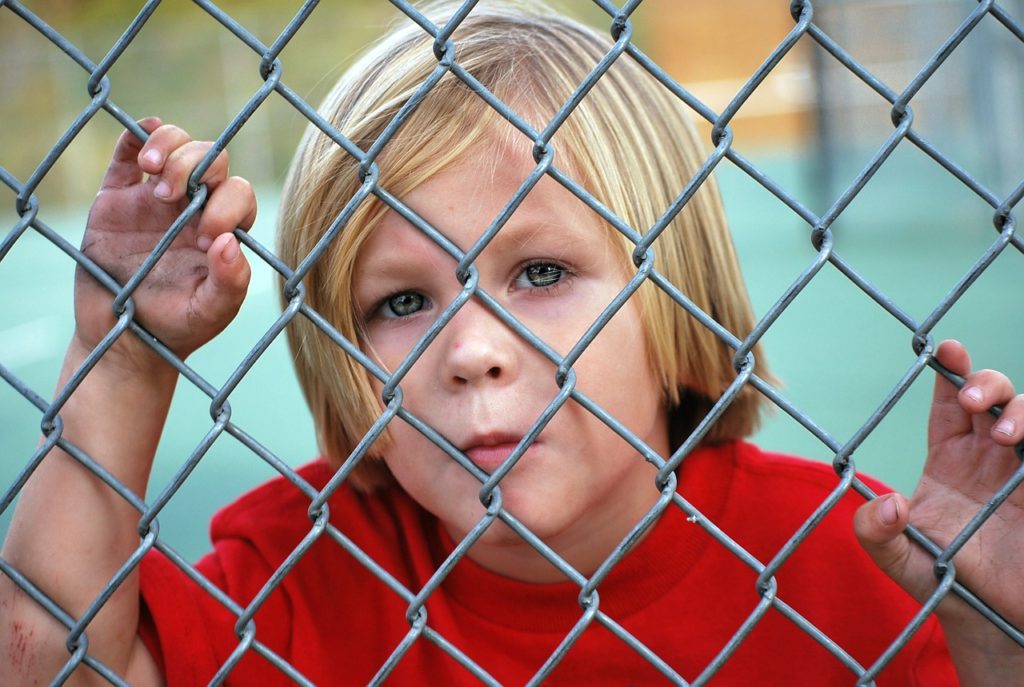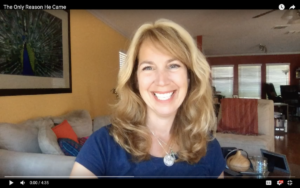Light, Love and Lifesavers Candy
When I was four years old, I stole a pack of Lifesavers from the grocery store. I didn’t know at the time that it was stealing. I was shopping with my dad and processing the experience through a four-year-old’s eyes. We went into the store and filled our cart with things we liked to eat. At the checkout, a young man put the food into paper bags while my father spoke with the nice woman behind the conveyor belt. And then we left.
I knew nothing about the exchange of cash for merchandise, and with my short stature, I didn’t see the transaction. So, on this particular trip, I put a roll of Lifesavers in my pocket. That’s what I liked to eat. My father discovered the trespass when we got home and gave me a sound spanking before driving me back to the store so I could return the candy and apologize. The lesson was clear—taking something without paying for it is stealing, and stealing is bad.
I learned right from wrong that day, but I also experienced two profound emotions: fear and shame.

When I was 13, I stole a brooch from a small boutique. Did I know stealing was wrong? Absolutely. Was I afraid of the consequences if I got caught? Yes. But I was more afraid of losing face in the eyes of my friend, Tanya, who had dared me to swipe the jewelry. She reveled in my bravery and rebellion when I showed her the prize. I had won her admiration, but there was no joy. I felt only shame.
My freshman year in college, I stole a candy bar from the student union. Again, the deed was done on a dare. Here I was, entering adulthood and venturing out into the world on my own, yet still doing stupid things because of peer pressure. Five years had passed, but nothing had changed. I was still operating in the same paradigm. I was driven not by the desire to do right, but by the desire to be accepted and avoid the mockery of my peers. The fear and shame that I experienced at four years old colored my thinking far more than the knowledge of the law.
Fear and shame do not inspire change. Love does.
My Facebook feed is filled with the vitriol of friends and acquaintances pointing fingers of judgment at people they have never met but who hold positions of authority and power. They post angry rants about the trespasses of politicians and actors and journalists whose moral failings have been made public. I suppose their finger-wagging gives them a sense of control and bolsters feelings of moral superiority. But it’s all a distraction. I know these people—we have done life together, and they have failings of their own. I know about the binge drinking, the sexual abuse, and those trips to the strip club. I know about the decision to sleep with a married man to stave off the loneliness and self-doubt. I have heard these friends say utterly hateful things about people they care for; witnessed addictions to food, wine and pornography; and mourned their broken relationships and broken homes and broken hearts. I know their stories. I have mine, too. We all do.
Judgment does not inspire change. Love does.
A few years ago, I began doing prison ministry with my husband. Every Wednesday, we drive two hours to a unit in Palestine, Texas, to meet with the 200 men attending a program called Alpha. After a time of praise and worship, someone from our ministry team gives a short teaching related to the current book study. Then, the men circle up in groups for an hour of small group discussion. And things get real.
They talk about their families. They talk about their failings. They talk about knowing right from wrong and making bad decisions anyway—the same bad decisions over and over, that continued to put them back behind bars. And they talk about learning to trust, learning to be authentic, and learning to take accountability. Most importantly, they talk about learning to walk in their identity of who God created them to be, and accepting the love of a Father who is perfect beyond all measure. Through teaching and prayer and fellowship, they discover who they are in Christ. And that changes everything.
See what great love the Father has lavished on us,
that we should be called children of God! (1 John 3:1a)
I have seen hardened felons become kind and compassionate men as they experience God’s love for them. I have witnessed men who committed unspeakable crimes become gifted leaders and teachers, encouraging and edifying their brothers in Christ as they walk out their journey of faith. These are no jailhouse conversions, where the men drop their Bibles at the door as they head home. No, this is lasting change—powerful, soul-quenching change born solely out of love. The majority of men we met behind bars who since have been released are gainfully employed, in committed relationships, reconciled with their families, and actively involved in their local church. They are thriving.
For we are God’s handiwork,
created in Christ Jesus to do good works, which God prepared in advance for us to do. (Ephesians 2:10)
These men stay on the straight and narrow not out of fear of shame or judgment or consequences, but out of gratitude. Like the prodigal son, they chose to live a life of debauchery, finding only fleeting joy in the sex and drugs and approval of their peers. Feeding their fleshly desires ultimately led to greater despair, but no matter how depraved their actions, God loved them anyway. He loved them so much that He sent His Son to bear the punishment for their sins and welcomed His lost children home with open arms. He did it for me, too.
I have seen broken men transformed through God’s love. I have seen women once cloaked in shame discover their true worth through God’s love. I have seen my own heart transformed and experienced inexplicable peace through God’s love.
We can point the finger of judgment. We can spend our days attending rallies and posting rants about the unspeakable acts of others. Or, we can be the light.
Share happiness. Applaud the peacemakers. Bring encouragement and laughter. And soak in God’s love. When you discover how precious you are in His sight, and how deeply He longs to provide for you, comfort you, protect you and raise you up to great heights, you will know your true identity. You will find your purpose and can guide others to healing. You will be a true changemaker, because you walk in love.
But you are a chosen people, a royal priesthood, a holy nation, God’s special possession, that you may declare the praises of him who called you out of darkness into his wonderful light. (1 Peter 2:9)
January 5, 2018 2 Comments
Sharpening Iron
As Christians, we are called to love our neighbors as ourselves. Many people think of this in the context of serving others, offering compassion and forgiveness, or helping someone with material needs. Yes, loving your neighbor as yourself can mean bringing someone a home-cooked meal when they are sick, turning the other cheek when a co-worker says something hurtful, or driving 45 minutes to help a friend with a flat tire. But it can also mean being strong when someone else is weak, and being courageous on their behalf.
Several years ago, our six-year-old cat Junior suffered a thrombosis on a Tuesday afternoon. He was lying on the stairs howling in pain and confusion, with his back legs completely paralyzed. I happened to be home that day and quickly scooped him up and rushed him to the vet. My husband Craig dropped everything to meet me there. The news was not good: Junior had only a 5-10% chance of recovery, and even if he did recover, he had a 90% chance of throwing another blood clot within the next six months. It was a genetic condition—nothing we could have foreseen and with no real cure—and so we made the difficult decision to put him down.

I cried like a child and fell into my husband’s arms. He was a rock, staying calm and offering me a steady flow of love and support for the next several hours as we said our goodbyes to a beloved pet, and then returned home and tried to step back into everyday life. Craig was strong and steadfast for me when I was weak and broken. Months later, he confessed that he was a wreck that day, too—that he wanted to cry and to be held as he grieved, but that someone had to be the strong one. Someone had to step up.
So encourage each other and build each other up, just as you are already doing. (1 Thessalonians 5:11 NLV)
What surprised me, however, was when he explained that he had made the decision to be strong long before the event occurred. He had purposed in his mind and his heart to be calm in a time of crisis, regardless of his own feelings and emotions, so that others could trust and rely on him. He chose in advance to put me before himself, and he was ready when I needed his strength.
Going to Extremes
Fast forward to this past week, when I went skydiving for the first time. I have never wanted to skydive—in fact, since Craig and I first married 11 years ago, I have told him repeatedly that I would never in my life jump out of a plane. But last week, I went skydiving because I knew that someone else needed my strength. I purposed in my mind and heart to step as far as possible out of my comfort zone—to do something so extreme and confront my own fears and weakness head on—so that when a friend or even a complete stranger felt weak and broken, they would have a living, breathing example of courage and strength.

My goal was not to encourage anyone else to skydive. My goal was to demonstrate that you can choose to be bold when you feel broken, that you can choose to move forward even when you feel bound by fear. Whether that fear is related to a relationship or a job loss or an addiction or a disability, it doesn’t matter. What matters is seeing first hand that you can choose to be strong, choose to be brave, and find the strength to overcome your circumstances through faith in Christ Jesus. When I jumped, I didn’t know who would need to see that example or hear that message, but I was sure that it would help someone move forward on the path that God has for them.
Be the Example
As children, we rely on our parents, siblings or grandparents to protect and encourage us when we feel frail. As adults, we are often called to be the strong one. We may feel helpless and broken ourselves, but Philippians 4:13 reminds us that our strength comes not from our own efforts or will, but from the Lord. Today, I encourage you to be an encouragement. Set your mind on things above by determining that you will be strong for someone else in a time of need. Reach out to a friend or loved one and edify them with your words and actions. Decide to love your neighbor as yourself by choosing in advance to be their rock.
Carry each other’s burdens, and in this way you will fulfill the law of Christ. (Galatians 6:2 NIV)
More verses on encouragement:
And we urge you, brothers, admonish the idle, encourage the fainthearted, help the weak, be patient with them all. (1 Thessalonians 5:14 ESV)
Not neglecting to meet together, as is the habit of some, but encouraging one another, and all the more as you see the Day drawing near. (Hebrews 10:25 ESV)
Iron sharpens iron, and one man sharpens another. (Proverbs 27:17)
January 27, 2015 1 Comment

